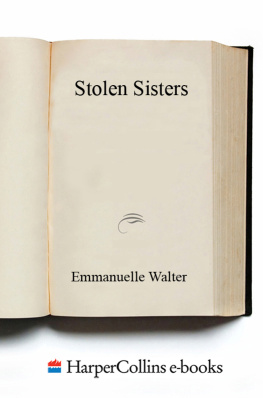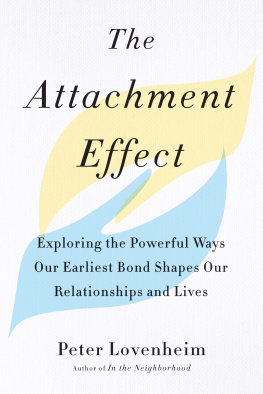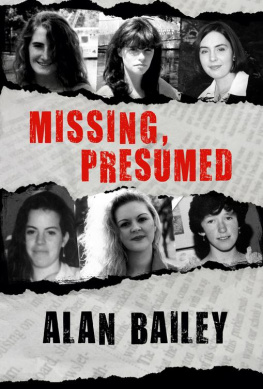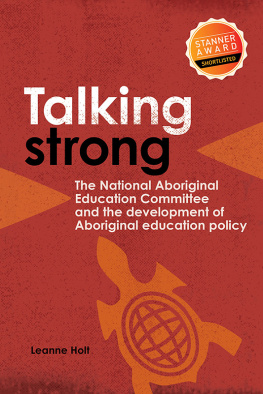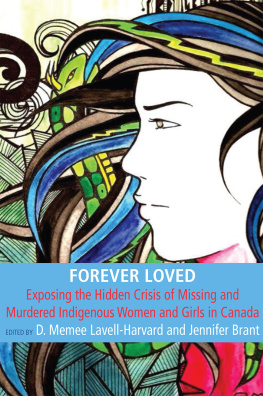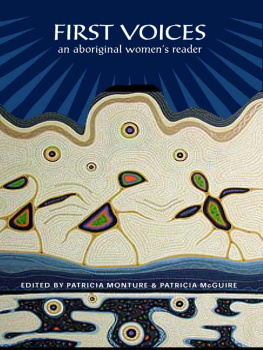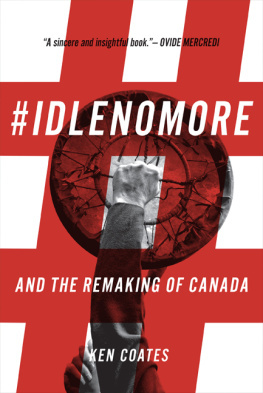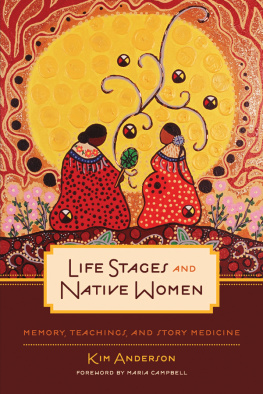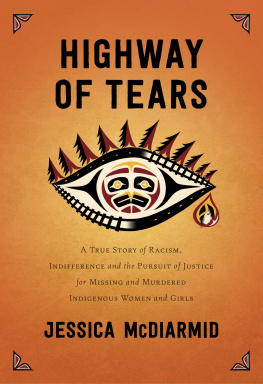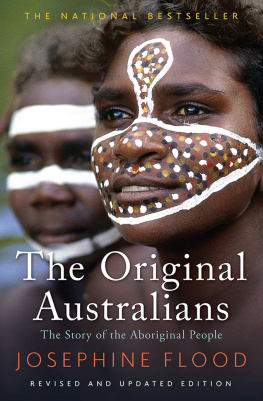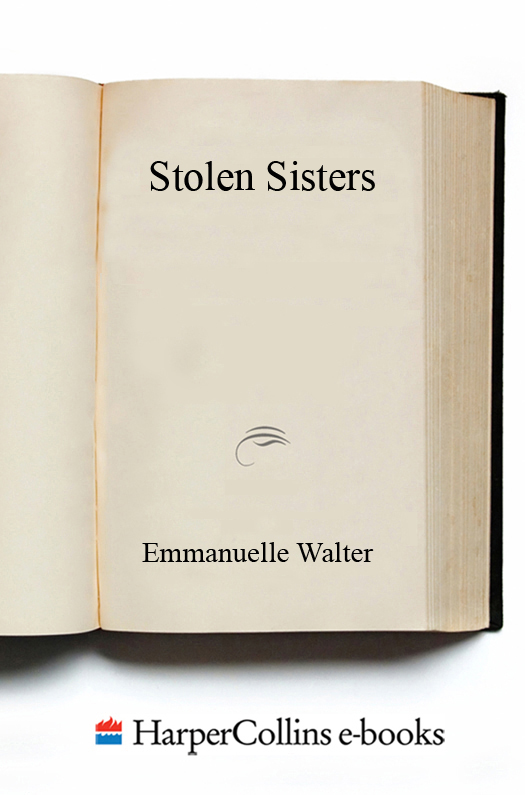To adolescence.
For Maisy and Shannon, wherever they may be.
Grandfather said you dont want to understand someone if you are stealing, or have stolen, all their property.
It might make you feel bad about what you did if you understood them.
Jim Harrison, Dalva
This issue is not a womens issue, this is not an Aboriginal issue. This is a human tragedy, and this is a national disgrace.
Dawn Harvard, interim president of the Native Womens Association of Canada, in a speech given on Parliament Hill, October 4, 2013
CONTENTS
Guide
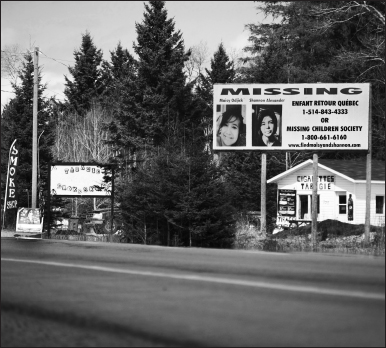
Entering the village of Kitigan Zibi from the south.
The day I learned that my sister Bella had been found dead on the terrace of a high-rise condo near Torontos waterfront, with no explanation of why or how she fell, was the day I understood what it feels like to grieve so deeply and so immensely that nothing else matters. It felt like there was no end to the screaming sadness.
When I am asked what Missing and Murdered Indigenous Women (MMIW) means to me, I think of pain, grief, shock, sadness and anger. I think of the gaping void that families suffer after experiencing the loss of cherished and loved ones in such drastic, traumatic and violent ways that no woman or girl should ever be subjected to. I think of the ripple effects that families experience after a tragic event like this happens, and how a family struggles to cope with this trauma. I think of the younger generation in each family, who must try to understand that their mother, sister, aunt or grandmother has not only been violently taken but continues to be inhumanly disrespected and disregarded after her deathone of the many blights in Canadas history and a present-day reality that Prime Minister Harper and others pretend does not exist.
On the hardest and heaviest days, I think not only of my own familys experience, but of the many Indigenous families who need support after experiencing such a loss, but do not have it. I think of families like Maisy Odjicks and Shannon Alexanders, who for years have been searching for their missing daughters who disappeared without a trace.
With the increasing visibility of MMIW in recent years, one of the building debates we see in the media and in parliament is about the need for an inquiry into MMIW. After asking other families of missing and murdered loved ones, I found, amidst a range of responses, a number of truths that we agree upon. Whether we call it an inquiry, a commission or an action plan, this process must first and foremost take its direction and leadership from the families of MMIW. Of course, dealing with this widespread issue will inevitably include a variety of segments of societyacademics, politicians, community advocates, lawyers and policebut the inclusion and involvement of families must not be tokenistic, as it often has been.
An inquiry shouldnt focus just on confirming what we already knowthat this is a widespread societal problembut an inquiry should include community-based and Indigenous-led solutions. Unless a wide spectrum of families and communities are involved from the onset of such a plan, it will not succeed. It is families and communities of MMIW who best understand the breadth, depth and root causes of this issue, and what solutions could and should look like.
If there is an inquiry, it is also necessary to examine how the police are dealing with the cases of MMIW and to require that the RCMP and local police departments share their files with families, especially when cases are unsolved and idle like my sisters case. It is imperative that we develop and implement policies that prevent the inaction that makes the police complicit in allowing the number of MMIW to grow. With so many cases unsolved, it appears to those who murder and disappear Indigenous women that there are no significant consequences. Also, justice is lacking for families when cases are brought before the courts.
Another unknown in this polarizing debate is what exactly an inquiry would entail. If its goal were to determine whether or not the police have been doing their due diligence to solve the cases of MMIW, and to give a comparative analysis of time spent on the cases of MMIW versus time spent on those of non-Indigenous women, then I might be inclined to agree that an inquiry would be useful. But if millions of dollars are going to be spent simply to verify whether the issue of MMIW is a problem, then no. We do not need more research in order to acknowledge that this is a serious problem we need to address.
What we do need is to recognize that violence against Indigenous women has systemic causes that are colonial in nature. This is why books like this one are so important. Emmanuelle Walter brings to life the stories of two young girls to show the vibrant and multifaceted humanity that exists in our communities instead of the often dehumanizing, one-dimensional stories we read in the media about Indigenous women. Stolen Sisters documents how difficult the experiences are for families after a loved one is missing or murdered, by giving the reader an idea of how little support families often have when dealing with police inaction on cases. Her book also helps to dissect the root causes, which date back to colonial origins. The fact that wider Canadian society is not aware of these causes exacerbates the stereotypes of Indigenous communities and is part of why Indigenous women go missing or are murdered.
There are already close to sixty research papers on the issue of MMIW, and over seven hundred recommendations have already been put forward. Yet only a few of these recommendations have been implemented to date. Not only are these types of solutions needed, but we will need generations of healing for our communities to be healthy and whole again after this trauma. This violence against our women has lasted for hundreds of yearsreally since colonialism started on this continent.
Indigenous communities do not need to be studied to death. We need to be empowered to make the changes that we ourselves see fit for our Nations, communities and families. The federal government needs to recognize the impact that government policies have had and continue to have on Indigenous communities, in ways that leave Indigenous women in precarious and vulnerable positions in society. Until the government recognizes the root causes of violence against Indigenous women, their so-called action plan will never succeed.
The Tories Action Plan, released on September 15, 2014, places the blame on Indigenous communities by insinuating that violence against our women happens solely within our communities. This is far from the truth. Violence is also inflicted upon our women by non-Indigenous men. This is a Canadian problem, not solely a First Nations problem.
We need to unpack the patriarchal, racist and colonial mentalities of Canadian society to ultimately address the reasons why Indigenous womens lives are not valued in Canadian society as much as the lives of white women. We need to hold those who perpetrate violence against women accountable. At least 1,200 Indigenous women have been murdered or have gone missing in the last thirty years alone. As Widia Larivire, co-founder of the Quebec branch of the Idle No More movement, has pointed out, if you look at this in terms of proportion of the population, this number of Indigenous women would represent around thirty thousand Canadian women. There is no denying that if thirty thousand white women were missing or had been murdered, there would be an uproar and the governments approach would be instantaneous and dramatic. A far cry from the current response.

